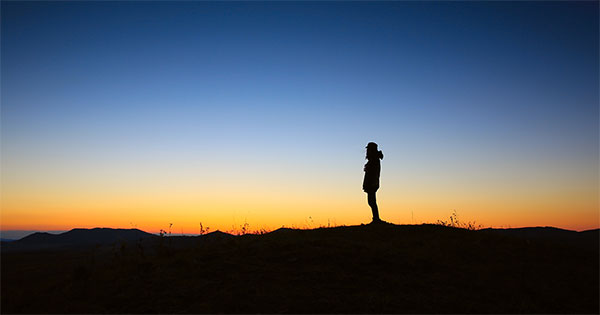
When it comes to facing down the shrill imprecations of televangelists and street protesters, or the assignment of blame for earthquakes and other disasters, there’s hardly a more longsuffering group of people in America than gays and lesbians. But even some of the staunchest opponents of same-sex relationships have begun to acknowledge that their churches may have room for celibate gays and lesbians. It’s a unique historical development and one that presents the gay community with an important choice—but maybe not the most obvious one.
There’s a popular idea that all major world religions universally condemn homosexuality. It isn’t true, and it’s time to put an end to this destructive myth. On the other hand, there’s an equally popular wholesale rejection of religion by many gays and lesbians. It’s just as shortsighted and unfair. I know because I used to share the view. I left Christianity when I was eighteen. My reasons had nothing to do with its stance on homosexuality, but early on I couldn’t appreciate how meaningful religion could be to so many intelligent, kind people.
But there’s a recent transformation taking place that signals positive change: not only are religious communities opening up to the LGBT community, but individual gays and lesbians are insisting on their place in the pew. It’s a natural and important development for gay and lesbian history. Despite such an encouraging development, the gay community is still largely holding on to one final, related but inexcusable prejudice of our own: judgment and exclusion for gays and lesbians who exist on that uncertain middle ground and who choose to remain celibate.
Gays and lesbians are fundamentally defined and identified by the uniqueness of their love and sex lives. It’s an indispensable token of identity that we may never shake. Our community has faced terrible prejudice for the simple act of acknowledging our most intimate relationships. We’ve rightly made the calculation that the freedom to love who we want openly is worth the discrimination and lives lost as we fight against ignorance. Only with narrow-mindedness can we now look at our fellows and judge them for making their own choices about which intimate relationships to prioritize.
It’s not a cowardly, weak choice to value your own understanding of spiritual fulfillment and closeness to your God over sex and love. It’s a bold, costly and often very painful choice. Major world religions do not agree on homosexuality, but one thing nearly all religions do agree on is that spiritual awakening often can require giving up what’s most meaningful to you.
I would never tell anyone that you can’t love your God and your same-sex partner (I have a place for both). Nor would I defend those who insist that coupled gays and lesbians can’t worship alongside them. But I would defend the right of my fellow gays and lesbians to make the most meaningful, intimate choices about their lives without judgment and exclusion.
I know I didn’t leave Christianity because I was gay, but I also know that religion (despite its excesses) is a profoundly powerful force for fulfillment and transformation, and that’s why, in time, I found my way back to belief.
Gays can’t beat God, and there’s no reason we should try. Let’s not judge our peers who decide their understanding of their religion and of their relationship to their God is worth sacrificing pleasurable and fulfilling love and sex. We’re the only ones who might know what that choice feels like and what it can cost. Let’s celebrate that they’ve found a meaningful relationship of their own.
When I did leave Christianity, it had nothing to do with homosexuality and everything to do with my own unanswered questions. I didn’t come out for eight years after I realized I was gay. I’d be lying if I said my fear wasn’t partly responsible, but growing up in the church, that relationship provided real meaning to my life. It unequivocally made me a better person.
I know how it feels to be torn between your beliefs and your biology. It’s a painful, introspective experience and one that isn’t made any easier by intolerance from the only ones who might understand your predicament. A community that doesn’t welcome its members at their most vulnerable doesn’t deserve them at their strongest.
For a community so inclusive its acronym seems to grow every year, isn’t it time LGBT Americans admit that you can be gay and lesbian even if you choose to remain celibate for your religious convictions? It’s time we open a space for everyone to belong.
 About Matthew Snider
About Matthew Snider
Matthew Snider is a lawyer and analyst from Maryland. He writes on LGBT issues for Progressive Maryland and attends religious services with his partner every Sunday. He can be found on Twitter @matthewsnider.
Leave a Reply